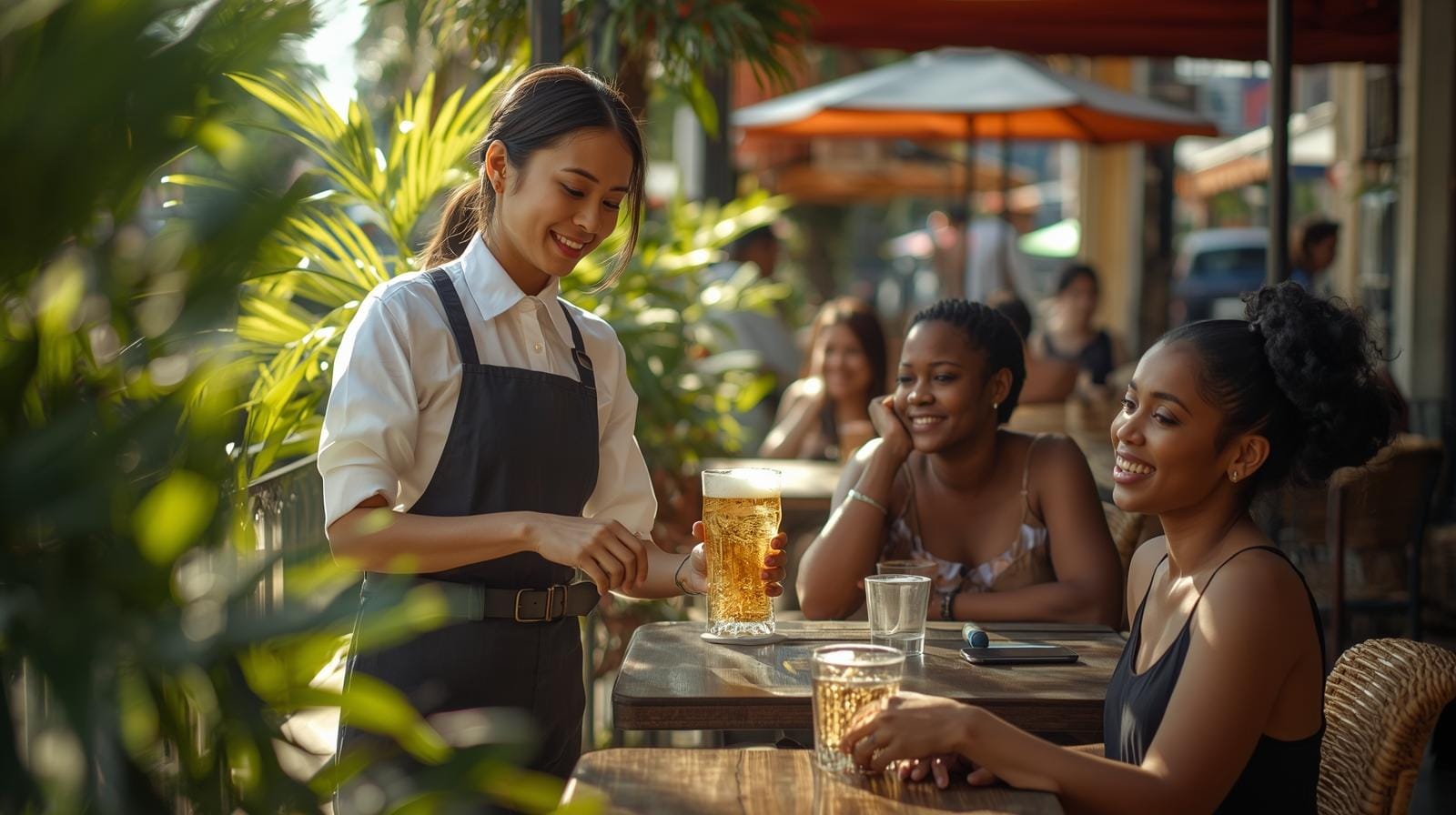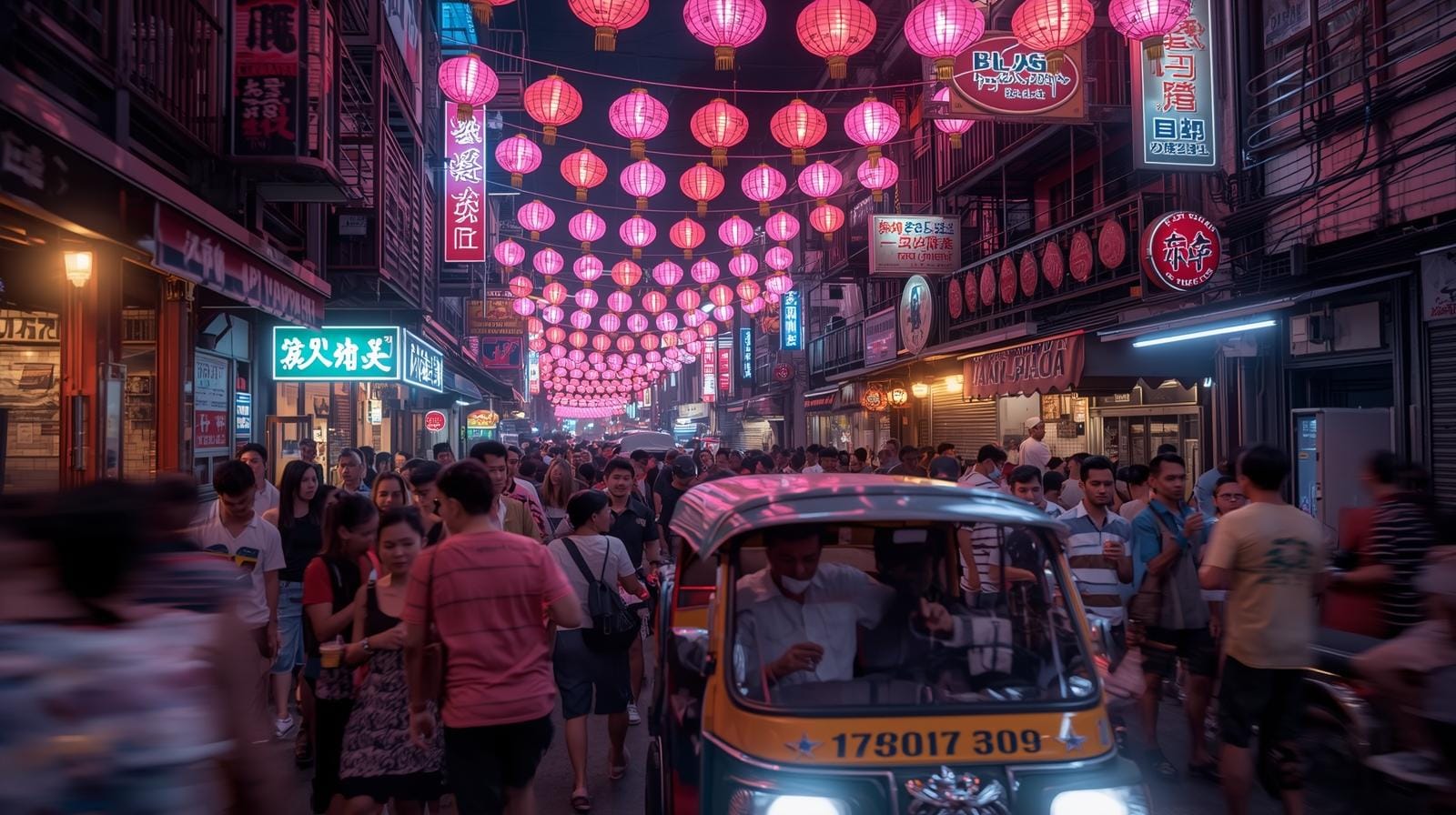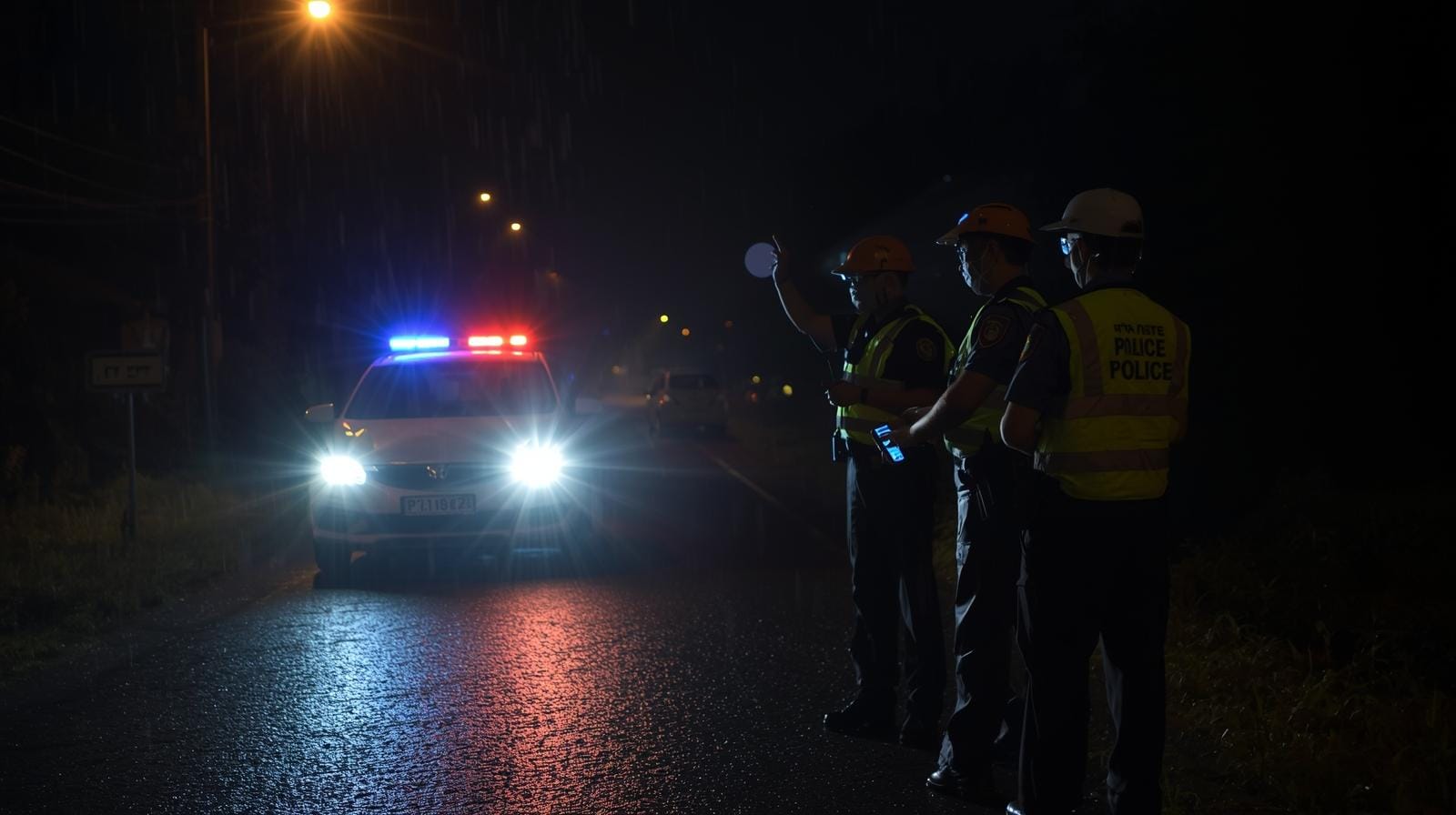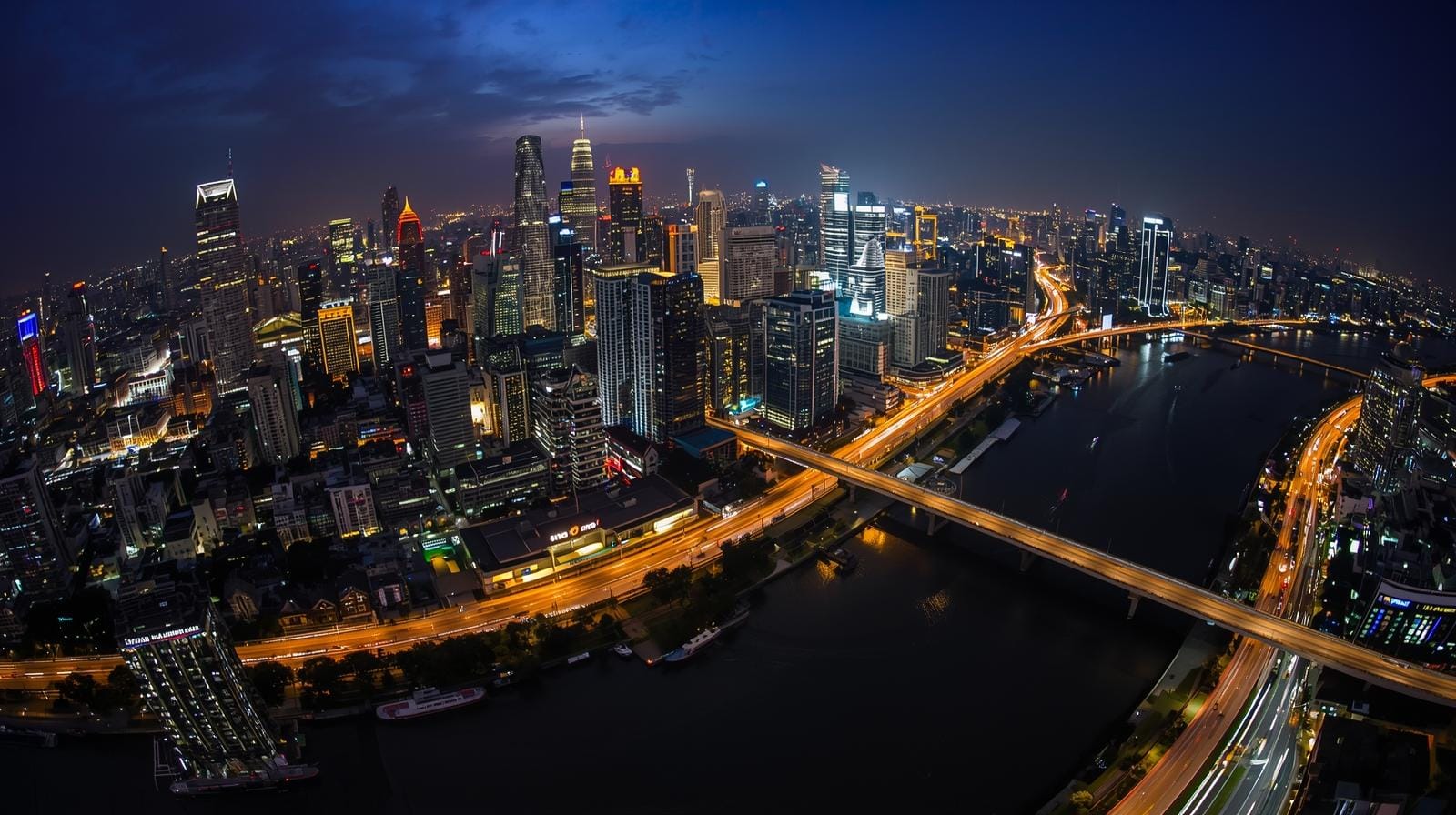A 53-Year Ban Ends at Last
For half a century, a quiet rule shaped Thai afternoons: between 2 PM and 5 PM, buying a drink was forbidden. This prohibition, introduced in 1972 by a military decree to curb civil servants’ lunchtime drinking, became ingrained in daily life. Convenience stores covered beer shelves each day at 2:00 sharp; restaurants turned away patrons seeking an afternoon cocktail. But on September 11, 2025, that era officially ended. Thailand lifted its 53-year afternoon alcohol ban, abruptly erasing one of the country’s more peculiar legal relics. The change means tourists and locals alike can now legally clink glasses in mid-afternoon – a drastic shift for a nation that, until recently, outlawed a 3 PM beer. At the same time, the government is moving to loosen another longstanding restriction: how late the party can go. Prime Minister Anutin Charnvirakul has ordered an end to Thailand’s patchwork of nightlife “zoning” and a uniform extension of bar closing times to 4 AM nationwide by January 2026. The push is on a fast track – aimed to kick in just ahead of an expected early parliamentary dissolution – underscoring the political urgency behind these liberalizations. After decades of watching the clock, Thailand’s bars, clubs, and their patrons may soon gain two extra hours of nighttime freedom.
“The order was in place for 53 years, but society has changed,” noted Sorathep Rojpojanarat, a leader of the Thai Restaurant Association, reflecting on the now-abolished afternoon sales ban. He explained that many tourists used to avoid dining between 2 and 5 PM, since they couldn’t enjoy a beer or glass of wine with their meal.
The immediate impact of lifting the midday ban was tangible. Within days, eateries reported a lunchtime rush extending into the afternoon. Restauranteurs who once watched tables sit empty at 3 PM now see new customers – and revenues – flowing in. Industry surveys predict mid-afternoon dining sales could jump by 20–25% with the restriction gone, a welcome bump for hospitality businesses. The law’s historical rationale – improving productivity and public order – had long faded in relevance as Thailand’s economy evolved into a tourism powerhouse. In recent years, the ban often perplexed foreigners and frustrated restaurant owners more than it curbed any drinking. Its removal has been widely applauded by business groups as a common-sense modernization. Still, the bigger prize for nightlife venues is the impending late-night extension. Currently, only select “entertainment zones” in tourist hotspots (like parts of Bangkok, Phuket, and Pattaya) have special permission to stay open until 4 AM; elsewhere a strict 2 AM curfew has been enforced. If the government’s plan proceeds, every province would be free to party late. That prospect has bar owners from Chiang Mai to Khon Kaen buzzing with anticipation – and dusting off plans to expand operations to take advantage of the longer hours.
For 53 years, ordering a beer at 3 PM was illegal in Thailand. That changed in late 2025, as the long-standing afternoon alcohol sales ban was finally lifted.

Ready to take your next step in Thailand?
The Thailand Advisor helps readers move from research to real action — connecting you with vetted local experts who understand the system, pricing, and process.
Whether you’re exploring visas, company setup, property, or insurance, you’ll get credible guidance from day one — no spam, no hidden fees.
Click below to start your short matching form and see who’s best positioned to help you.
4 AM Ambitions and a Tourism Boost
Why dismantle these alcohol restrictions now? In a word: tourism. Thailand’s leaders are betting that longer drinking hours will translate into longer stays and higher spending by visitors. The timing is no coincidence – the government’s flagship “Amazing Thailand 2025” campaign is in full swing, with an ambitious target of 40 million foreign arrivals and ₿2.8 trillion in tourism revenue for 2025. To hit those goals and rev up an economy still recovering from the pandemic, officials are looking for any edge to lure international travelers. Nightlife is a natural selling point: Bangkok’s after-dark scene and island full-moon parties are already world-famous, yet in the past they’ve been hemmed in by curfews and quirky rules like the afternoon ban. By aligning Thailand’s alcohol laws with global norms, the government hopes to burnish the country’s image as an “open all hours” destination for leisure and entertainment. Studies commissioned by the Tourism Authority predict that simply extending legal alcohol sales by a few hours each day could spur upwards of ฿50 billion in additional annual spending on drinks, dining and nightlife. That’s on top of indirect boosts to hotels, taxis, and other services when happy tourists stay out later. The wider economic stakes haven’t been lost on policymakers. In fact, Thailand’s Finance Ministry has floated eye-popping projections of what a more freewheeling nightlife could bring into state coffers – on the order of ฿500 billion in extra tax revenue from alcohol and entertainment if the 4 AM closing time goes nationwide. Such figures assume roaring business across bars and clubs countrywide, and they underscore how central these reforms are to the government’s growth strategy. With regional travel competition heating up and Thailand aiming to reclaim its pre-COVID visitor numbers, no opportunity for revenue is off the table.
“Looser alcohol laws could generate up to 500 billion baht in new revenue for Thailand,” Finance Minister Pichai Chunhavajira insisted, framing the 4 AM last call as an economic catalyst. He argues that a livelier nightlife will not only keep tourists spending, but also create jobs and tax income that benefit the country at large.
From the perspective of tourism operators, the calculus is simple. A later last call means more time for fun – and that makes Thailand more attractive, especially for younger travelers and those from cultures where late-night revelry is standard. Competing destinations have already seized on this; for instance, parts of Vietnam and Cambodia have relaxed their own night curfews to capture party-going tourists. Thailand doesn’t want to be left behind. Local businesses, from nightclub owners in Bangkok to beach bar operators in Phuket, are gearing up marketing around the expected 4 AM closing. Many plan to roll out new promotions and events in the post-2 AM window – effectively adding a second primetime. The sentiment in the hospitality industry is that these reforms are “overdue.” After years of navigating around the 2 AM cutoff (sometimes quietly paying fines to keep serving regulars late), bars and clubs see validation in the government finally loosening the rules. And it’s not just about alcohol itself; a vibrant late-night scene feeds into Thailand’s broader appeal as a place where freedom and fun are part of the experience. As one Bangkok club promoter quipped, “If we want to call ourselves a 24-hour city, this is a start.”
Ready to take your next step in Thailand?
The Thailand Advisor helps readers move from research to real action — connecting you with vetted local experts who understand the system, pricing, and process.
Whether you’re exploring visas, company setup, property, or insurance, you’ll get credible guidance from day one — no spam, no hidden fees.
Click below to start your short matching form and see who’s best positioned to help you.
Thailand is only a click away — plan your next trip below.

Critics Raise Sobering Concerns
Not everyone is toasting these changes. As quickly as the new policies materialized, a chorus of public health advocates, safety campaigners, and religious groups began voicing alarm. Just a day after Prime Minister Anutin’s 4 AM proposal hit headlines, a coalition of anti-alcohol NGOs and drunk-driving victims announced a rally at Government House to protest the move. Their message: expanding alcohol access may be good for business, but it carries a human cost that Thailand has painfully experienced before. Thailand’s roads are already among the world’s deadliest, and drunk driving is a leading factor in holiday accident spikes. Opponents of the later last call fear that what’s good for the economy could prove lethal on the highways. “We are deeply concerned about more late-night drunk drivers and the strain on emergency rooms,” one advocate from the Don’t Drink and Drive Foundation told local media. Beyond accidents, health experts point to alcohol’s toll in domestic violence and addiction – warning that longer hours will only exacerbate these issues. There’s also skepticism about the true beneficiaries of the reform. Some critics note that the push for liberalization has been led by business interests (hotel, alcohol and nightlife lobbies) and worry that public welfare is taking a back seat to profit. The involvement of Anutin Charnvirakul – who previously served as Public Health Minister – particularly raised eyebrows. Activists like Chuwit Chantaros, who leads the Campaign for Protection from Alcohol Harm, urged the Prime Minister to remember his old stance. “Having been Health Minister, Anutin should understand the implications of such a policy,” Chuwit argued in a statement. He and others accuse the government of sending mixed signals: championing public wellness in rhetoric, yet loosening controls on a substance linked to societal harms.
“Allowing bars nationwide to pour drinks until 4 AM undermines our commitment to public health,” argued Chuwit Chantaros, one of Thailand’s prominent alcohol reform critics. He warned that the policy’s costs – from drunk-driving crashes to late-night violence – could outweigh any gains in tourist dollars.
The anti-reform camp is also pushing back on the rosy financial projections. In fact, they’ve seized on the government’s own big number as evidence of wishful thinking. Thailand’s entire alcohol market – all beer, wine and spirits sold in a year – is valued at around ฿500 billion. So the claim that simply extending hours would add that same amount in new tax revenue strikes skeptics as unrealistic. “It doesn’t pass the smell test,” a public policy researcher commented, noting that nightlife spending would have to explode to hit such figures. These critics want hard data and trials before permanent changes are locked in. They’re urging the administration to review results from areas that already allow 4 AM closing (like parts of Phuket and Pattaya) to see if economic benefits truly outweigh incidents of drunk driving, crime, or noise complaints. Some have suggested a phased approach – for example, piloting the 4 AM close in major tourist cities for a year while investing in stricter enforcement (more breathalyzer checkpoints, tougher penalties for bar violations) to mitigate risks. Officials at the Ministry of Public Health, for their part, have stressed that other safeguards remain in force. The minimum drinking age is still 20, and sales are still banned on certain religious holidays and election days. “Thailand isn’t becoming the Wild West,” a Public Health Ministry spokesperson remarked, emphasizing that the new latitude comes with an expectation of responsibility. The government has promised to intensify drunk-driving prevention campaigns alongside the liberalization – a bid to reassure the public that it can have it both ways: economic rejuvenation without social fallout. Whether that balance is achievable is now a central question in the debate over how far – and how fast – Thailand should open the taps.

Ready to take your next step in Thailand?
The Thailand Advisor helps readers move from research to real action — connecting you with vetted local experts who understand the system, pricing, and process.
Whether you’re exploring visas, company setup, property, or insurance, you’ll get credible guidance from day one — no spam, no hidden fees.
Click below to start your short matching form and see who’s best positioned to help you.
A New Era for Nightlife – If Balance Prevails
These alcohol law changes don’t stand alone; they’re part of a broader pattern of Thai reforms chipping away at old regulations. In the past year, the government has unveiled plans to streamline decades-old visa regimes and ease long-standing limits on foreign business ownership – moves aimed at improving Thailand’s competitiveness. The push to deregulate nightlife fits the same narrative: shedding anachronistic rules to unleash economic potential. “This marks a symbolic step toward a more open, modern Thailand,” said Pakorn T., a Bangkok hospitality consultant, who sees the alcohol reforms as a signal to investors and travelers. The willingness to extend bar hours and trust the market, he noted, “aligns with the government’s wider push to show Thailand isn’t stuck in the past.” Indeed, the end of the afternoon ban and the 4 AM proposal have been cheered by the business community as evidence that Thailand is intent on shaking off its more paternalistic policies. As covered in our analysis of Thailand’s visa overhaul and the easing of foreign ownership rules the country’s leadership is keen to project an image of a place open for business, investment, and now nightlife. Entrepreneurs are already eyeing opportunities that a 4 AM closing time could bring. Bar and club operators in secondary cities – places that previously never had a legal late-night scene – are scouting locations, anticipating that entertainment zones will sprout beyond the usual tourist hotspots. Some investors from abroad have expressed interest in Thailand’s nightlife industry given the friendlier rules, according to trade groups, seeing parallels to booms in places like Japan after it relaxed its late-night dancing laws. There’s cautious optimism that liberalizing alcohol laws could spur a mini-renaissance in Thailand’s entertainment and hospitality sectors: think new music venues, boutique breweries, or night markets that run till dawn, all catering to an expanded nocturnal clientele.
Yet, even boosters acknowledge that implementation will be key. Changing the law is one thing; managing the on-the-ground reality is another. If all bars can open late, will local police enforce noise ordinances to keep neighborhoods happy? Will roads be policed well enough at 3 or 4 AM to prevent tragedies? The government has floated the idea of requiring venues that stay open past 2 AM to meet certain criteria (such as having security personnel and CCTV, or being in designated commercial areas) to mitigate problems. Cities like Bangkok are also contemplating improved late-night public transport options so revelers aren’t all driving home. These practical measures will influence whether the policy is viewed as a success a year from now. Culturally, Thailand may also test how a traditionally moderate society adapts to newfound freedoms. The country’s majority Buddhist ethos has long promoted temperance (for instance, many Thais observe “Buddhist holy days” when they refrain from alcohol). Some wonder if an embrace of all-day, all-night drinking spots might clash with community values outside the tourist bubbles. Others counter that Thailand’s social fabric has already evolved – pointing out that urban Thai youth and a huge expat community have different expectations today than decades ago.
In the coming months, as the 4 AM closing time is debated and likely implemented, Thailand will in effect run a national experiment: Can it capture the economic upsides of a liberal nightlife, while keeping a lid on the downsides? Success might be measured in a surge of happy tourists posting about Bangkok’s “new” 4 AM vibe – and an absence of negative headlines about late-night incidents. Failure, conversely, could force embarrassing backtracking if hospitals and police blame policy for a spike in accidents. For now, the momentum is firmly behind change. The current administration has staked political capital on dragging Thailand’s alcohol laws into the 21st century, rushing to get it done before election season heats up. In doing so, it has sent a message to the world and its own citizens: Thailand is open later, and open for business. The coming year will reveal if that gamble pays off in sustainable gains, or if the hangover prompts a rethink.

Ready to take your next step in Thailand?
The Thailand Advisor helps readers move from research to real action — connecting you with vetted local experts who understand the system, pricing, and process.
Whether you’re exploring visas, company setup, property, or insurance, you’ll get credible guidance from day one — no spam, no hidden fees.
Click below to start your short matching form and see who’s best positioned to help you.
External Sources: Tourism Authority of Thailand (TAT) – Official “Amazing Thailand 2025” campaign overview (press release targeting 40 million visitors and 3 trillion Baht revenue); Inside Beer – Industry report on Thailand’s alcohol law reforms (details on the 53-year ban lift and expected market impact).






